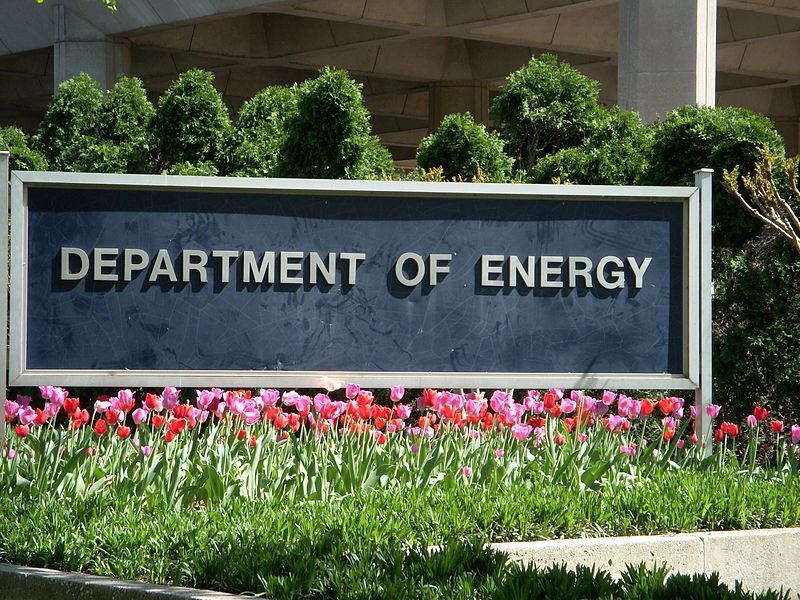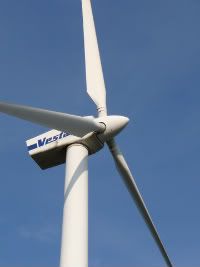Biden’s Clean Energy Speech: US Will Lead the Global Clean-Energy Revolution. Great! Can We Get Started Soon?
Joe Biden believes that the US, armed as it is with its “entrepreneurial spirit and innovative national labs,” will “lead the global clean-energy revolution and reap the economic and environmental benefits that go with it.” At least, this is what he told an audience that packed an auditorium at the National Renewable Energy Laboratory (NREL) earlier this week.
Damn! I’m so sorry I missed that speech, as I’m sure it was grounded in solid fact, as most political speeches are. Hey, he didn’t happen to mention when all this was supposed to get started, did he?
Democrats make empty speeches about US leadership in clean energy. But I suppose that’s marginally better than Republicans, who have relatively little to say on the subject other than convincing voters that environmentalism is bad for the economy, that the imperative to move away from fossil fuels is over-hyped, and that the super-profitable oil companies still need huge subsidies from taxpayers.
However, while we here in the US are busy talking about renewables (or remaining silent about it, as the case may be), the Chinese and others are actually making it happen. China has a large and ever-widening lead in global clean energy investment; according to Bloomberg, they’ll spend 5 trillion yuan (nearly $740 billion) over the next 10 years on renewable energy projects.
America lives with constant uncertainty and the vigorous flip-flops that immediately follow every two-year election cycle. While all this makes for lively debate, which I suppose is good for voter turn-out and approval ratings, understandably, it renders investors quite nervous. In fact, it means death to any hope for the solid stream of capital formation that will be necessary to make clean energy a reality.
We’re good at rancor; we’ve proven that, year after year. Now we need something that we’ve not yet been able to demonstrate: a commitment to go beyond the name-calling and gross over-simplifications — the strength to build a consensus that will move us forward in an effective and practical manner.
But does there really seem to be any change on the horizon? If there is, I sure don’t see it. I liken this to the alcoholic who, until he hits rock bottom, refuses to cart himself off to rehab and clean up his life. I see the same situation for clean energy in the US; we haven’t sunk low enough to create the necessary motivation.
Unless there is a dramatic shift in our approach, in about a decade Americans will wake up one day to realize that the country they love is now number three or four in clean energy – an industry that will have come to dominate the world economy. We will have lost the most important economic battle in the 21st Century. Maybe better said: we will have sat on the sidelines and watched the rest of the world fight the most important economic battle in the 21st Century.
I predict that this tragic event will spawn some real change in leadership, albeit too late, as we’re a nation that really doesn’t like to lose. I’m reminded of the words of George C. Scott as General George Patton: “Americans love a winner, and they will not tolerate a loser.”
Yes, Americans will eventually place a limit on their tolerance for failure and humiliation. But wouldn’t it be easier to fight hard and win now? Perhaps a timely question to ask, as we memorialize the millions of fallen soldiers and the sacrifices they made to keep America strong.



![[The Vector] Clean Energy News: New Approaches Needed to Mainstream Sustainable Living -- Continued](/wp-content/uploads/2011/04/earth-in-our-hands-1.jpg)
 Levelheaded people often refer to themselves as “pragmatists” – those who understand all sides of an issue and work forward to a solution that meets the practical requirements of everyone involved. With respect to energy policy, this usually means regarding the mining and burning of coal (that here in the US generates 48% of our electricity) as a “necessary evil.”
Levelheaded people often refer to themselves as “pragmatists” – those who understand all sides of an issue and work forward to a solution that meets the practical requirements of everyone involved. With respect to energy policy, this usually means regarding the mining and burning of coal (that here in the US generates 48% of our electricity) as a “necessary evil.”



